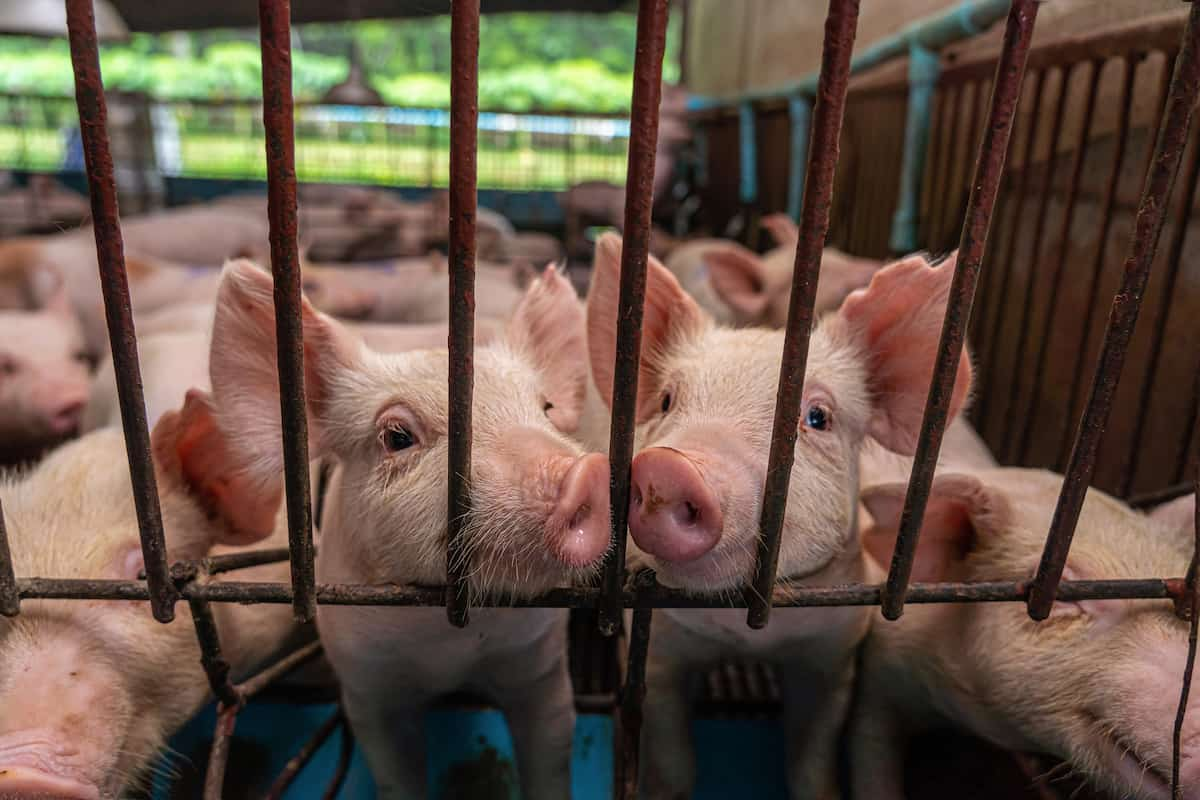Pig farming can be lucrative and rewarding but requires careful planning, management, and care. Whether you’re starting a small-scale pig farm for personal consumption or building a larger operation for commercial purposes, there are several key steps you need to take to ensure your success.

How to Start Pig Farming in 10 Steps
Research and Create a Business Plan
The first step in starting a pig farming business is to conduct market research and create a business plan. The business plan should outline the objectives of the business, the target market, financial projections, and marketing strategies.
Necessary Licenses and Permits
To start a pig farming business, you must obtain the necessary licenses and permits. These may include a business license, tax identification number, and environmental and health regulations permits. It is important to check with the local authorities to ensure you have all the necessary licenses and permits to operate a pig farming business.
Choose a Suitable Location
Choosing a suitable location is critical for the success of a pig farming business. The location should be easily accessible, have a reliable water source, and be away from residential areas to avoid complaints about noise and odor. Additionally, the location should have adequate space for pig housing, feeding, and waste management.
Invest in Pig Housing and Equipment
Investing in pig housing and equipment is essential for the success of a pig farming business. The housing should provide the pigs with adequate space, ventilation, and temperature control. The equipment should include feeding troughs, waterers, and waste management systems.
Choose the Right Breed of Pigs
Choosing the right breed of pig is important for the success of a pig farming business. The breed should be suitable for the local climate, disease-resistant, and have good growth potential. It is also important to consider the breed’s market demand and the breeding stock’s availability.
Develop a Feeding Plan
Developing a feeding plan is important for ensuring the health and growth of your pigs. The feeding plan should consider the nutritional requirements of the pigs at different stages of growth, the availability of feed ingredients, and the cost of feed. Ensuring that the pigs always have access to clean and fresh water is important.
Hire Experienced Staff
If you do not have prior pig farming experience, hiring experienced staff who can help manage the farm may be necessary. Alternatively, consider attending training programs or courses to learn the necessary skills. You may need to learn pig handling, health management, and breeding.
In case you missed it: Top 5 Government Sheep Farming Subsidy Schemes in India

Develop a Health Management Plan
A health management plan is important for preventing and managing diseases in your pig herd. The plan should include regular health checks, vaccination schedules, and biosecurity measures to prevent the introduction of diseases to your farm. Having a plan in place for managing sick pigs is also important.
Establish Relationships with Buyers and Suppliers
Establishing relationships with buyers and suppliers is important for the success of your pig farming business. Identifying potential buyers for your pigs and establishing relationships with them is important. You will also need to establish relationships with feed, equipment, and veterinary service suppliers.
Monitor and Evaluate the Performance of Your Business
Monitoring and evaluating the performance of your pig farming business is important for identifying areas of improvement and making necessary changes. You should regularly review your financial performance, production performance, and customer feedback to identify areas where you can improve. This will help you to stay competitive and ensure the long-term success of your business.
In case you missed it: Top 5 Government Goat Farming Subsidy Schemes in India

Effective health management of pigs requires a combination of biosecurity measures, proper nutrition, vaccination programs, and regular health monitoring by a veterinarian or other qualified professional.
Conclusion
In conclusion, starting a pig farming business requires careful planning and management to ensure its success. The 10 steps this guide outlines are crucial in laying the foundation for a profitable pig farming venture. By following these steps, aspiring pig farmers can be on their way to running a successful and sustainable business.
- Feed Your Flock for Less: Top 10 Tips to Save on Chicken Feed
- Ultimate Guide to Ossabaw Island Hog: Breeding, Raising, Diet, and Care
- Hatching Answers: The Top 10 Reasons Your Chickens Aren’t Laying Eggs
- Eggs and Economics: Breaking Down the Cost of Raising Backyard Chickens
- Defend Your Greens: Proven Methods to Keep Iguanas Out of Your Garden
- Ultimate Guide to Cinnamon Queen Chicken: A Comprehensive Guide for Beginners
- Ultimate Guide to California Tan Chicken: Breeding, Raising, Diet, Egg-Production and Care
- Ultimate Guide to Marsh Daisy Chicken: Breeding, Raising, Diet, and Care
- 10 Types of Chicken Farming Businesses You Can Start for Profits